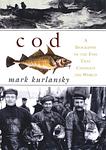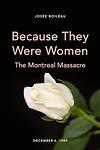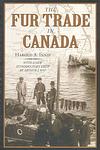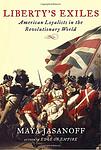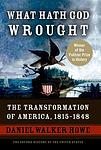The Greatest "Canada, History" Books of All Time
Click to learn how this list is calculated.
This list represents a comprehensive and trusted collection of the greatest books. Developed through a specialized algorithm, it brings together 300 'best of' book lists to form a definitive guide to the world's most acclaimed books. For those interested in how these books are chosen, additional details can be found on the rankings page.
Genres
The "Canada" category for books would encompass literature that is set in, written by, or about Canada and its people. This category would include a wide range of genres, such as fiction, non-fiction, poetry, and memoirs, and would explore various themes related to Canadian culture, history, and identity. Books in this category would offer readers a unique perspective on Canada and its diverse communities, landscapes, and experiences.
The category of "History" in books refers to the study and interpretation of past events, societies, and cultures. It encompasses a wide range of topics, including political, social, economic, and cultural developments, as well as the lives of individuals and groups who have shaped the course of history. History books can be written from various perspectives and may focus on specific time periods, regions, or themes. They aim to provide readers with a deeper understanding of the past and its impact on the present.
Countries
Date Range
Reading Statistics
Click the button below to see how many of these books you've read!
Download
If you're interested in downloading this list as a CSV file for use in a spreadsheet application, you can easily do so by clicking the button below. Please note that to ensure a manageable file size and faster download, the CSV will include details for only the first 500 books.
Download-
1. Cod: A Biography of the Fish that Changed the World by Mark Kurlansky
This book is a fascinating exploration of the historical, cultural, economic, and ecological impact of the codfish. It traces the role of this fish in shaping economies, sparking wars, and influencing culinary trends across centuries and continents. The book also delves into the devastating effects of overfishing and the current struggle to sustain cod populations. The narrative combines history, science, and gastronomy to present a comprehensive biography of this significant fish species.
-
2. Great Heart by James West Davidson, John Rugge
"Great Heart" is a riveting historical account of the 1903 expedition across Labrador, one of the most inhospitable regions in North America. The book details the journey of four men and their struggle for survival against the harsh elements. The narrative is enriched with the explorers' own words, taken from their journals, giving readers an intimate look into their extraordinary adventure. The book is a testament to the human spirit and the will to survive, even in the face of insurmountable odds.
-
3. The Montreal Massacre by Louise Malette and Marie Chalouh
The book provides a detailed account of a tragic event that took place at an engineering school in Montreal, where a gunman targeted female students, resulting in the loss of numerous lives. The authors delve into the societal and cultural factors that may have contributed to the perpetrator's motivations, examining issues of gender-based violence and misogyny. Through interviews, personal reflections, and analysis, the book seeks to honor the victims and explore the broader implications of the event for Canadian society and the ongoing struggle for gender equality.
-
4. Notes From The Century Before by Edward Hoagland
In "Notes From The Century Before," the author embarks on a vivid exploration of British Columbia's remote wilderness in the 1960s. Through a series of journal entries, he recounts his encounters with the rugged landscapes, diverse wildlife, and the eclectic mix of settlers, trappers, and indigenous peoples who inhabit this frontier. His observations are both introspective and expansive, offering a reflective and often lyrical meditation on nature, civilization, and the human experience at the edge of the modern world. The narrative serves as a time capsule of a bygone era, capturing the spirit of adventure and the complexities of cultural intersections in a land poised on the cusp of change.
-
5. The Fur Trade In Canada by Harold A. Innis
"The Fur Trade in Canada" examines the pivotal role of the fur trade in the development of Canada, tracing its impact from the early days of French and British exploration and trade with Indigenous peoples through to its influence on economic and regional development. The book delves into the complex interactions between European traders and Indigenous communities, and how the demand for beaver pelts in Europe shaped the economic, social, and political landscapes of what would become Canada. The author uses extensive economic and historical analysis to argue that the fur trade was not merely an economic venture but a crucial factor in the formation of the Canadian nation.
-
6. Wonderful Life: The Burgess Shale And The Nature Of History by Stephen Jay Gould
"Wonderful Life: The Burgess Shale And The Nature Of History" explores the fascinating Burgess Shale fossil site in Canada and its profound impact on our understanding of evolution. Stephen Jay Gould delves into the diverse and bizarre creatures that once inhabited this ancient ecosystem, highlighting their significance in challenging traditional views of the evolutionary process. Through vivid storytelling and scientific analysis, Gould presents a thought-provoking argument that the history of life is contingent and unpredictable, emphasizing the importance of contingency in shaping the course of evolution.
-
7. Journal of the Voyage to the Pacific by Alexander Mackenzie
"Journal of the Voyage to the Pacific" is a travelogue that documents the author's journey from Great Slave Lake in Northwest Territories, Canada, to the Pacific Ocean. The author, an explorer, details the challenges and experiences he encountered during the first recorded transcontinental crossing of North America north of Mexico. The book provides an insightful view into the landscapes, indigenous cultures, and natural history of the late 18th century North American continent.
-
8. Liberty's Exiles: American Loyalists in the Revolutionary World by Maya Jasanoff
The book provides an in-depth exploration of the experiences of American Loyalists who were forced into exile following the American Revolution. It details their struggles and hardships as they sought to rebuild their lives in far-flung corners of the British Empire, including Canada, the Caribbean, Sierra Leone, and India. The book also examines the broader impact of this mass migration on the shaping of the British Empire and the early United States.
-
9. What Hath God Wrought by Daniel Walker Howe
This book provides a comprehensive historical account of the United States from 1815 to 1848, a transformative period marked by the significant political, economic, and technological changes that shaped the country's future. The author explores key events such as the War of 1812, the rise of industrialization, the expansion of democracy, and the Mexican-American War. The narrative also delves into the role of religion, the evolution of communications with the invention of the telegraph, and the emergence of a distinct American identity.
Reading Statistics
Click the button below to see how many of these books you've read!
Download
If you're interested in downloading this list as a CSV file for use in a spreadsheet application, you can easily do so by clicking the button below. Please note that to ensure a manageable file size and faster download, the CSV will include details for only the first 500 books.
Download